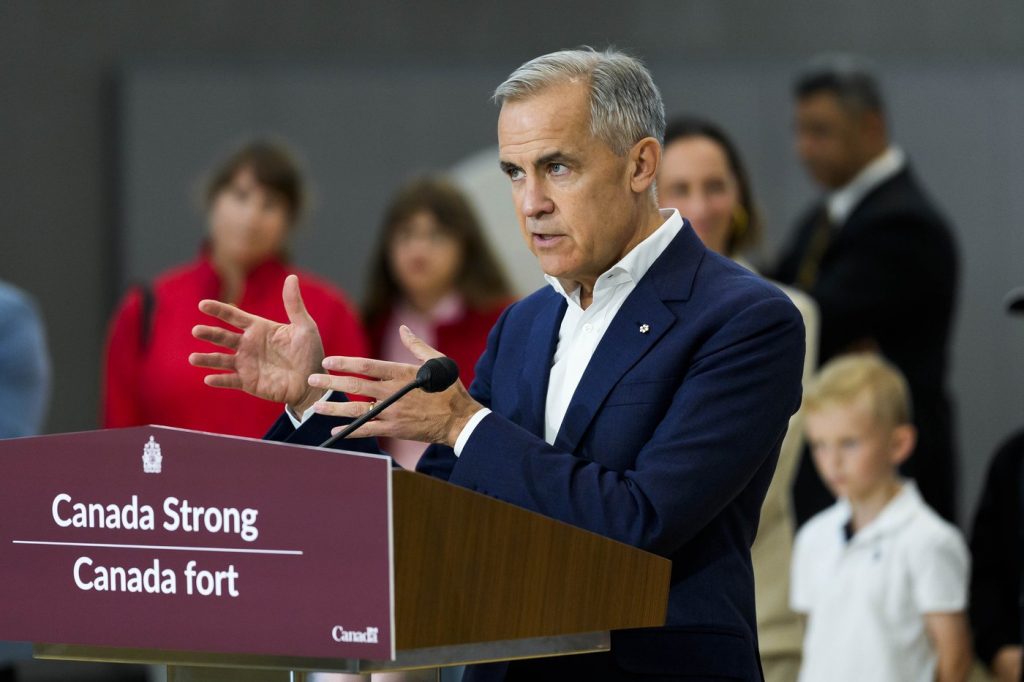OTTAWA – In a significant development regarding Canada's climate policy, Prime Minister Mark Carney has indicated that the future of the emissions cap on oil and gas producers is contingent upon other initiatives aimed at reducing greenhouse gas emissions. This statement, made during a press event in Ottawa on October 10, 2025, marks a notable change from Carney's pre-election pledge to maintain the emissions cap without alterations.
Responding to a reporter's inquiry about the potential repeal of both the emissions cap and the tanker ban along the British Columbia (B.C.) coast—a request from the oil and gas sector and the Alberta government—Carney emphasized that “it depends” on additional efforts to lower emissions. He further asserted that the overarching goal of his government is to decrease emissions in the energy, mining, and manufacturing sectors in a manner that enhances the global competitiveness of Canadian products.
The emissions cap, which is scheduled to come into effect in 2030, mandates that upstream oil and gas activities achieve a reduction of greenhouse gas emissions to 35 percent below the levels recorded in 2019. This regulatory framework is a crucial part of Canada’s broader climate strategy aimed at addressing environmental concerns while balancing economic stability.
Earlier in March 2025, Carney had publicly stated his intention to uphold the emissions cap, indicating a commitment to stringent climate governance. However, with this latest pronouncement, he has opened the door to reconsidering certain measures amid evolving circumstances regarding emissions reduction strategies. His administration is actively exploring alternative methods for achieving lower emissions, and this ongoing evaluation is reflected in his recent comments.
As debates continue over the balance between environmental regulation and economic interests, Carney’s remarks may signal a more flexible approach to energy policy. The oil and gas industry, alongside representatives from Alberta, has vocally criticized the emissions cap and the tanker ban, urging the federal government to reassess these policies to facilitate industry growth and resource development.
This situation underscores the complexities faced by the Canadian government in navigating climate objectives and economic priorities. Carney’s comments suggest a willingness to engage with industry stakeholders while also remaining committed to Canada’s climate commitments. The final decisions regarding the emissions cap and related measures will likely be influenced by further consultations and assessments surrounding Canada’s environmental policies and their impacts on the economy.
Overall, Prime Minister Mark Carney's latest statements reflect a shift in approach toward climate policy, prioritizing emissions reductions while being open to revisiting regulatory frameworks to support the oil and gas industry's competitiveness on a global scale. The outcomes of these deliberations will be crucial as Canada continues to aim for significant reductions in greenhouse gas emissions leading up to the 2030 deadline.











